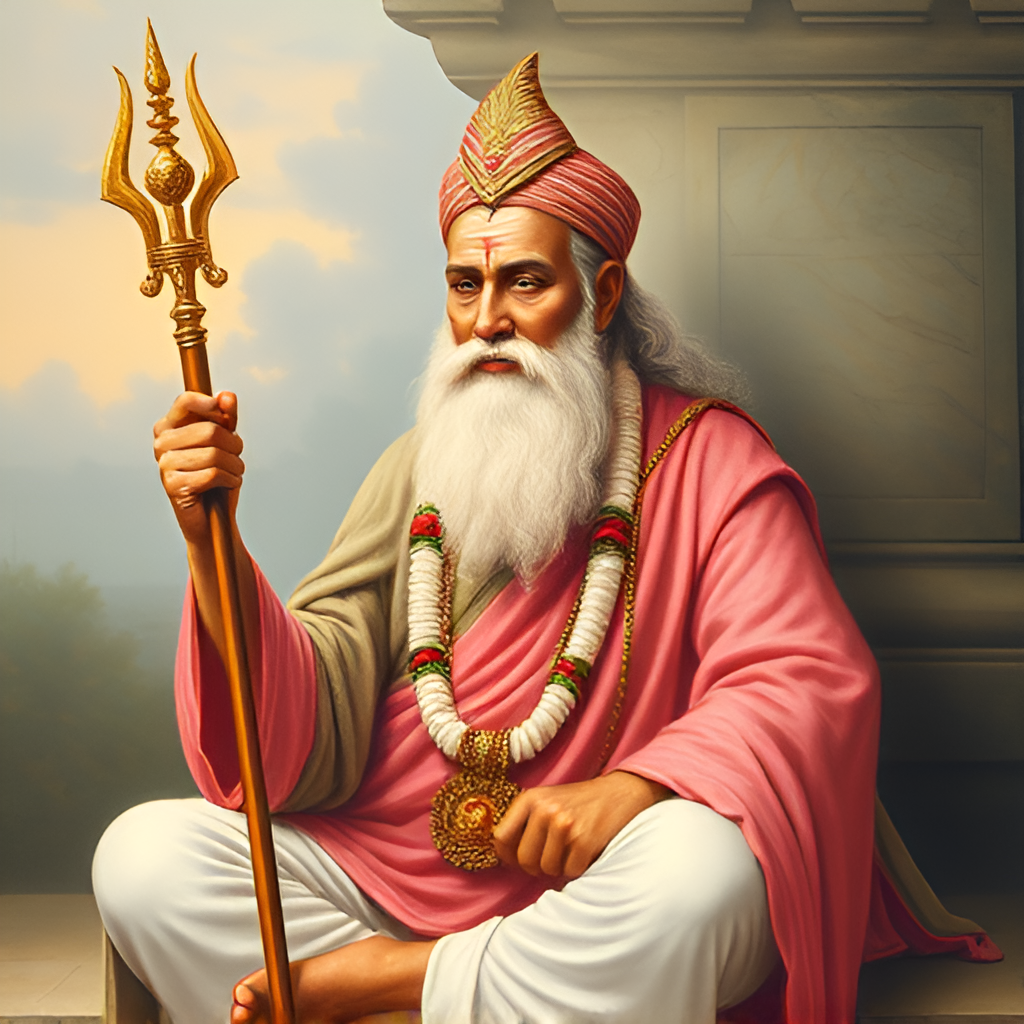The contributions of Mahapurush Srimanta Sankardev and Madhabdev are intricate to the cultural and religious life of Assam. The 15th century Vaishnavite saints shaped the history of Brahmaputra valley and the future that was to come through their writing and composition of devotional songs known as “Borgeet”, which means “Great Songs”. Sankardev spearheaded the great Bhakti Movement in the valley, being a contemporary of Swami Ramnadacharya, Chaitanya Mahaprabhu, Eknath, Sant Kabir and the great souls who illuminated the cultural life of Bharat. Madhabdev was the most prominent disciple of Sankardev who carried forward his legacy of artistic brilliance, apart from being the primary religious predecessor of Ekasarana Dharma.
Born in May of 1489 at Baligram of presently Lakhimpur district, Madhabdev, earlier, was a proponent of Shaktism. He was devoted to Tantra and was well versed in Purana and Tarka Shastra. However, his rendezvous with Srimanta Sankardeva changed his course of life to become an ardent follower of neo-vaishnavism. Famously known as “Manikachan Sanyog”, Madhavdev embraced Eksarana Dharma when Sankardev persuaded him to believe that Vishnu is the Supreme of all Gods. As known, Sankardev cited the sloka from Bhagavad Gita which means: “If you simply pour water on the root of a tree, all the branches, twigs, leaves, and flowers will be nourished.”
yathā taror mūla-niṣecanena
tṛpyanti tat-skandha-bhujopaśākhāḥ
prāṇopahārāc ca yathendriyāṇāṁ
tathaiva sarvārhaṇam acyutejyā
Thus, Madhabdev began the incredible path of Bhakti, creating and composing ageless devotional literature. He authored the Naam Ghosa, Hazari Ghosa, Bhakti Ratnavali and the famous Borgeets, among many other literary gems.
Bharatvarsh has a special place in his philosophy of devotion and spirituality. It is evident from the Borgeets he composed. He mentioned Bharata, the land, specifically, in two important contexts in his Borgeets.
dhanya-dhanya kali kaal
dhanya-narah-tanu-var
dhanya-dhanya-Bharatavari
tapa-japa-jyagya-teji
Tumara-charane-bhaji
Twa-namah-ghukhiyah-hari
Meaning, those mortals, who take birth in Bharatvarsh, receive four objects: the Kali yuga, the fortune of being born in Bharatvarsh, the mortal world and the opportunity of devotion to the Name of the Lord. The emphasis on the holy land of Bharatvarsh is evident as Madhavdev linked the land to the opportunity of liberation through the name of Lord. The spiritual aspect of liberation is therefore integrated into the concept of nation, Bharatvarsh, as well as time, the Kali yuga. Taking birth in the nation of Bharatvarsh is considered as a fortune that offers the opportunity of being closer to God. It signifies the society of the land that naturally supports spiritual enlightenment. Madhavdev points out the character of the Bharatvarsh as a nation in his other mention.
Bekhayu-Bharata-haurobuli-narah
Bharata-hatoto-ase-aneko-dukani
Nisini-kinile-pase-milibo-bhighini
Meaning; one needs to do trade in order to be in Bharatvarsh, the land has many traders, and, if one buys without knowing the right trader, the seeker is bound to have trouble. This Borgeet is of great relevance to the character of Bharat nation as a hub of civilization. Madhavdev indicated about the quality one requires to be in Bharat apart from describing the nation. He says, a person should be a trader in spiritual realms. It means, the person should develop the sense of spirituality to deal with the many forms of knowledge and its dimensions that exist in Bharatvarsh. The reason for this requirement of quality of a seeker is the presence of multitude of forms, belief systems, cultures and pathway to spirituality and God itself, which might lead to confusion. It is of utmost importance for the seeker to choose the right path in order to avoid trouble. Madhavdev, ultimately, persuades the seeker of spirituality to attain liberation by choosing the right path by taking refuge in the Name of Lord.
Madhavdev, the great Vaishnavite saint and the spiritual teacher from Brahmaputra valley shaped the era of Bhakti Movement together with other proponents across the nation, which became the backbone of Hindu culture and society. The priority of Bharatvarsh as a nation is of great significance in the writings of both Madhavdev and Srimanta Sankardev. It is the thoughtful contributions of these great philosophers and social reformers which is the source of the vibrant Assamese culture. Their teachings and timeless messages in the form of devotional culture is the foundation of the social and national life of the people of Assam.

